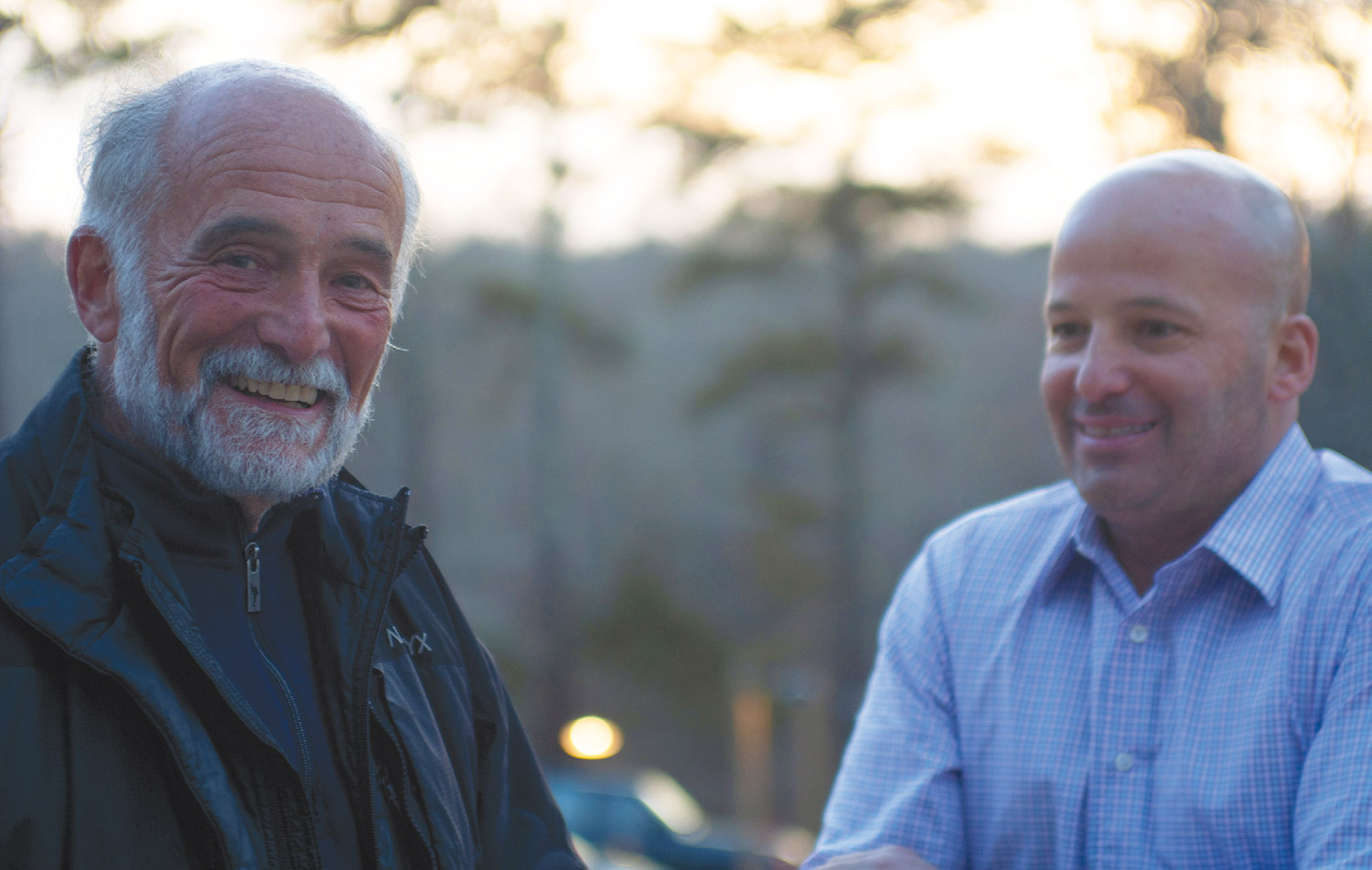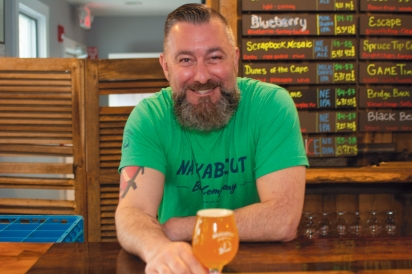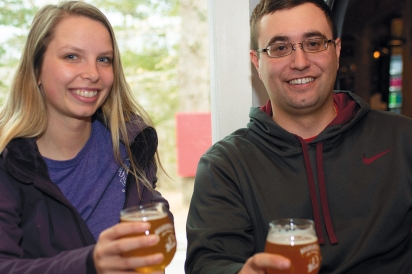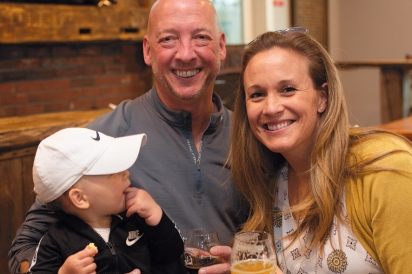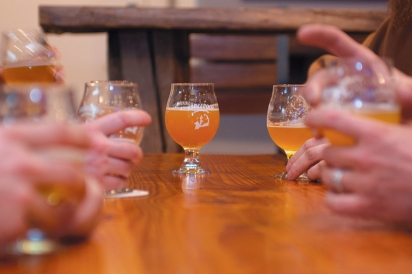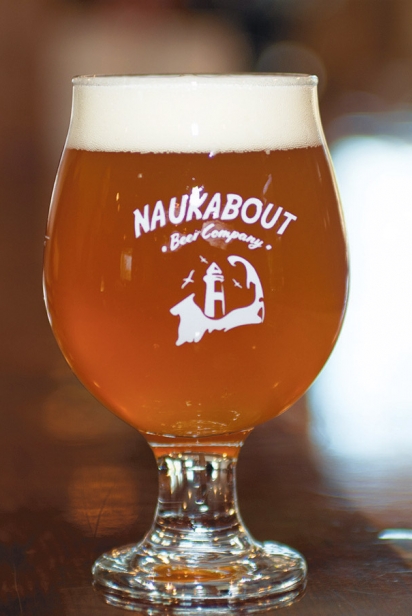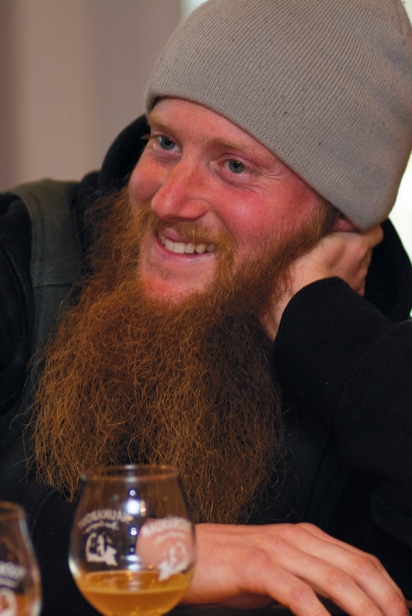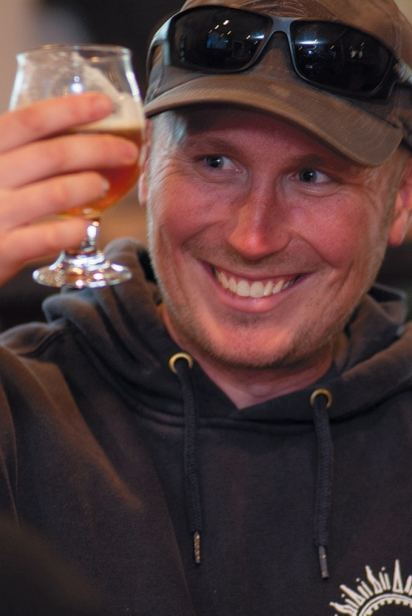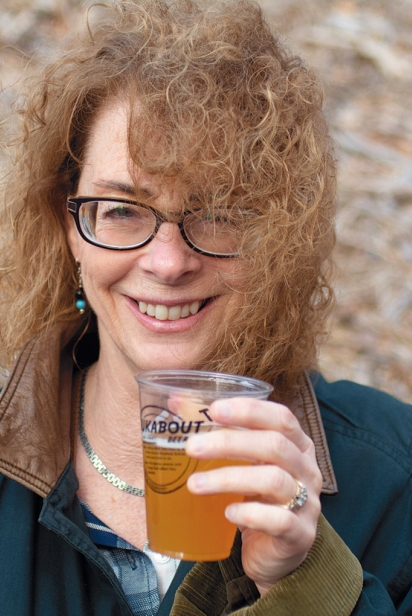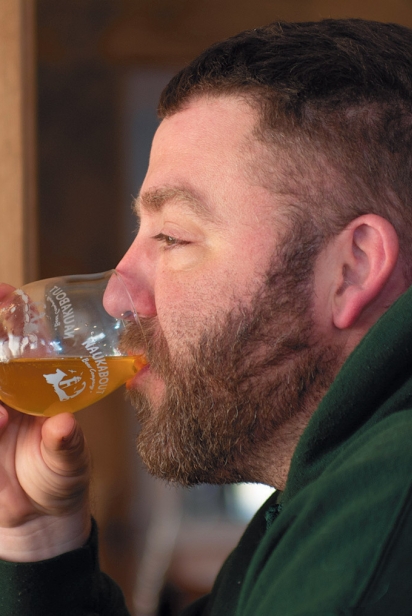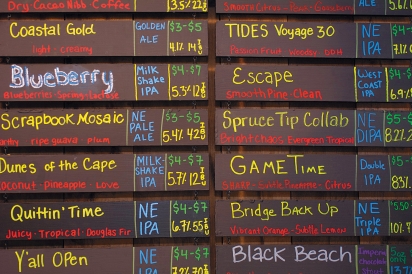Naukabout Brewery & Taproom
Building a Craft Brew Destination, One Brewery at a Time
While there are currently seven other craft brewers on the Cape and the Islands, that doesn’t bother Naukabout’s Ryan Ellis in the least. Ellis heads up sales and marketing for Naukabout Brewery and Taproom in Mashpee, and he thinks it’s “awesome” there are other craft breweries competing for the consumer and tourist dollar. Ellis, 28, believes in the maxim that a rising tide lifts all boats, therefore when one brewery is successful it reflects on them all. And even though he’s a wash-ashore from Somerville, Massachusetts, his loyalties lie staunchly with the Cape. “It’s an awesome way to develop a culture,” he says. “People travel across the country to places like Portland, Maine, for its craft beers. We could have that kind of culture happening on Cape Cod and it would be big business.”
The enthusiasm with which Ellis speaks extends beyond Naukabout profiting from beer drinkers making pilgrimages to the Cape. He has much broader, altruistic reasons. “Cape Cod has the reputation where people in general, but especially young people, can’t find a job that provides a livable wage,” he says, noting there are no media or tech companies on the Cape offering jobs that appeal to younger people’s tastes or that pay enough wages to support living here. “There are enough people my age who want to stay on the Cape but can’t,” he attests. Ellis sees craft-brewed beer as a way to generate jobs that allow young people to live on the Cape.
“This is not a Cape-specific problem,” said Lauren Barker, chief executive officer of Cape Cod Young Professionals (CCYP), a nonpartisan, non-profit organization that supports the careers of Cape Cod’s 45-and-under population. “The Cape, like many small to midsized communities across the country, has problems attracting and keeping younger people in the community.”
Barker cites findings from a 2014 report commissioned by CCYP from Northeastern University’s Dukakis Center for Urban and Regional Policy, that between 2000 and 2010, the Cape saw a 26 percent reduction in year-round residents 45 years old and under. More conclusively, the study found that people are not only leaving the Cape, they are not being replaced.
The study also uncovered specific factors for this attrition. They include the Cape’s well-known high cost of housing and the lack of diverse rental and ownership housing. But respondents also said that it is not just the lack of well-paying jobs; more precisely it’s that jobs that offer upward mobility are desired. Plus, a sense of community and quality of life are lacking on the Cape. To put it another way, people want to do things like meet people on the weekends.
Barker cautions against generalizations. “It’s cross-generational to want things like affordable housing and job opportunities,” she said. “But specifically, millennials and Gen Zs do expect more fluidity in their lives, and aren’t interested in the status quo.” Gen Z is the first generation for which cell phones and the Internet were entirely everyday.
Everything Barker says and everything her organization learned plays right into the vision that Ellis has for the Cape as a craft brew destination. Craft brews have been around for a while—we’ve seen the four-packs taking up all of that real estate in local packies—so most people are aware of their popularity. Breweries with adjoining taprooms like Naukabout’s are not your father’s bar. Yes, there’s college basketball on the HD screen and music both recorded and live— Prince’s 1999 particularly caught this writer’s ironic attention—but it also has board games like Connect 4, Candyland, and food trucks, that uniquely 21st century culinary trend, and wifi.
“So people can come in, punch the keys for a while, then have a brew,” said Ellis. Naukabout’s vibe is almost akin to a coffeehouse, but not quite since it’s still the beer that fuels the conversation. But you can find the same basic model, even the same board games, in Brooklyn, Portland, and the PNW. You start seeing the same food trucks at concerts, fairs and farmers’ markets. The question becomes, after five or ten visits to different breweries: when do craft breweries, and craft brews, all begin to seem alike? The answer is, with the right vision and corresponding brew master, each craft brewery could offer its own experience to tourists and beer aficionados, and that’s how a destination is born.
Brook Conley, one of Naukabout’s three founders—all men born and raised on the Cape who remained friends and even now are coworkers at the same Boston financial services company—tries to explain Naukabout’s vision. “The original idea is a place to come and hang out with friends and family. We wanted to put structure to the idea of enjoying the things we like to do in life: hang out with friends and enjoy some beer and food with our friends and family.”
Pete Murner, a co-owner, said, “Family and friends have always been in our DNA.” The name, Naukabout, came from Conley’s father, Tim, thirty-some years ago when he would come home from work and change out of his “work-abouts” and encourage his kids and their friends to get in their “knock-about” clothes and have some fun. Over time, knock-about morphed into naukabout, and a lifestyle, and a brand, were born.
Murner said they want people to feel like they’re coming to a backyard barbecue. Indeed, from three visits to the taproom, it does seem at times as if you’re a guest at some kind of private, Gatsbyesque backyard party, especially when you wander out the back door and over the hillside beer garden, complete with outdoor games and accommodating, knowledgeable beertenders, as they are called. On one recent Thursday in April when just about everything else on the Cape was still closed, the taproom started out quiet with a handful of patrons. As the afternoon progressed, it began to fill up, first by ones and twos, and then with the lively workday crowd before the evening Trivia Night teams.
While Naukabout offers a variety of both light and dark beer and its menu changes frequently, for the most part its beers are a range of their own distinctly flavored, primarily hop-forward, New Englandstyle IPAs. This style of IPA is less bitter than traditional IPAs because there are fewer hops, the source of the bitterness, added when the mash is cooking. More hops are added later when the beer is aging— a process called dry hopping—giving beer not only vibrant aromas, but the tropical, fruity flavors typical of a New England IPA. Just for the record, a New England IPA can be brewed anywhere, not just New England.
With Naukabout, try starting with their lightest Coastal Gold, a delicately flavored, nuanced beer, and work your way through the menu. Be sure to try Quitting Time New England IPA , a brew that’s kind of like what Impressionism is to painting: complex but still easily liked and understood. For a real walk on the wild side, try their Dunes of the Cape-NE Milkshake Pina Colada IPA . Look for any of their Tide Voyage beers. These are small, experimental batches that appear and disappear from the menu just as quickly. They’re so named because their ingredients change like the tides. And remember, Naukabout is family–friendly. They brew their own root beer on-site for kids: non-alcoholic, brewed with juniper berries, raisins, vanilla and organic cane sugar.
With sharks swimming offshore, the Cape will need to switch up attractions for people to cross the bridges. The Brewers Association reported that in 2017 craft breweries injected $72.2 billion into the economy, with $2.2 million earned in Massachusetts. According to Julia Herz, the Brewers Association’s craft beer program director, in 1978 there were fewer than 100 craft brewers in the United States. By 2007 there were 1450 breweries across the country, and today there are more than 5300 craft beer breweries nationwide. In Portland, Maine, the place Ellis held up as an example, there are 18 craft brewers. Compared to the more established craft brew destinations around the country, the Cape is still in its infancy. And it takes more than just craft brewers to make a destination. It takes time and money, and someone dedicated to seeing this vision become a reality.
William DeSousa, who handles media relations for the Cape Cod Chamber of Commerce, said that Cape Cod is a world-class tourist destination and should be treated that way. “We have people coming from not just around the United States, but from around the world— we have many visitors from Germany and France—who come for two and three weeks,” he said. “Those are the people you have to market to; not someone who comes down on a Friday night and tries to haggle with the innkeeper because there’s one room left.”
“The Chamber of Commerce struggles to get funding,” DeSousa continues. “For this to work you need to be able to pay someone who is astute in travel, who can get a website built and a press release written, who understands social media and is savvy with Discover New England, Visit Cape Cod, and Travelocity.”
But let’s go back to that particular Thursday in April. Catherine Sheedy, a teacher, had that Friday off so she and her husband, Christopher, and their toddler had driven to the Cape for a three-day weekend. They had gotten a room, were eating in restaurants, and now were relaxing in Naukabout. That’s one family. But one family can become ten families and ten can become a hundred. Maybe Ellis is dreaming. But dreams can come true.
Naukabout Beer Company
13 Lake Avenue, Mashpee
naukabout.com


